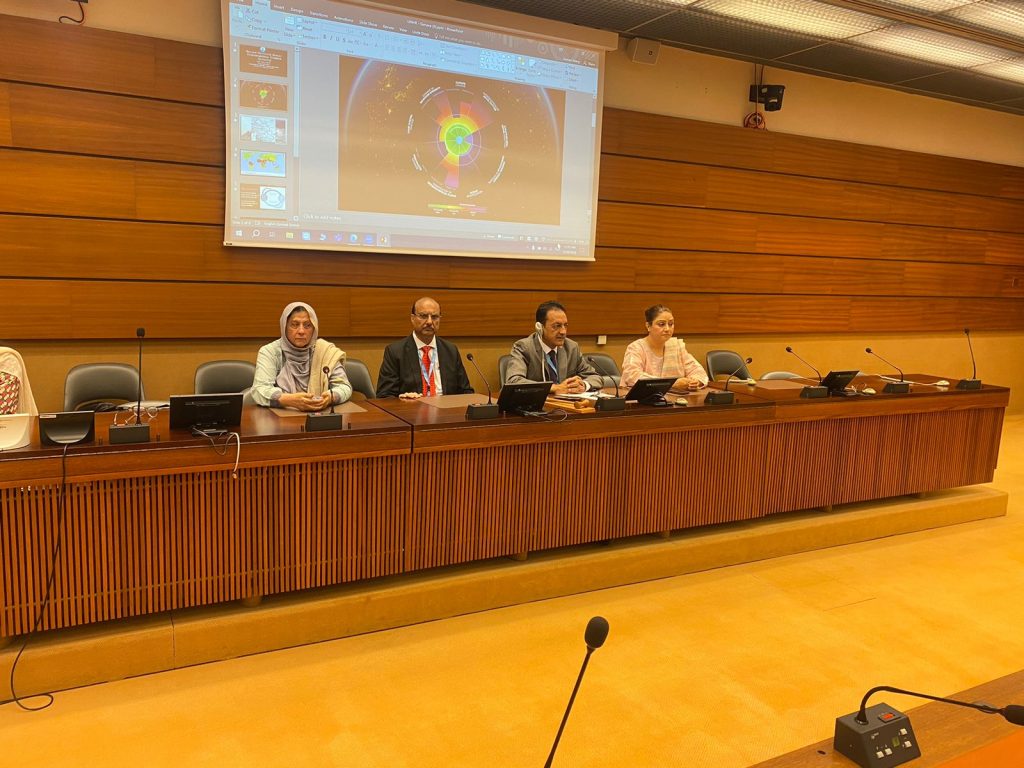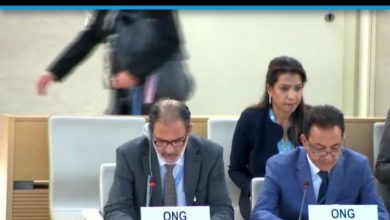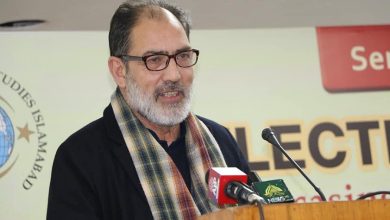Geneva symposium urges immediate climate action for conflict zones, with focus on Kashmir
 Geneva: At a symposium addressing the effects of climate change on human life, held during the 57th session of the UN Human Rights Council, speakers emphasized the urgent need for coordinated action to protect vulnerable communities in disputed regions, with a specific focus on Kashmir.
Geneva: At a symposium addressing the effects of climate change on human life, held during the 57th session of the UN Human Rights Council, speakers emphasized the urgent need for coordinated action to protect vulnerable communities in disputed regions, with a specific focus on Kashmir.
According to Kashmir Media Service, organized by the Kashmir Institute of International Relations (KIIR) in partnership with International Action for Peace and Sustainable Development, the seminar brought together a range of international specialists, human rights advocates, diplomats, and academics. Notable participants included environmentalist Talha Tufail Bhatti, Abdul Rehman, research officer from Center for International Strategic Studies, Azad Jammu and Kashmir (CISS AJK), APHC leaders Syed Faiz Naqashbandi and Ms. Shamim Shawl, Dr. Shugafta Ashraf and Eisha Tariq. The session was moderated by Sardar Amjad Yousaf Khan, President of International Action for Peace and Sustainable Development.
The speakers described climate change as a global issue which posed a major threat to those living in conflict-affected areas, where communities suffer a slew of challenges exacerbated by political conflicts, violence, and increased militarization. They highlighted occupied Jammu and Kashmir as a region especially vulnerable to climate change impacts, noting the detrimental effects on health, food security, and economic stability due to fluctuating temperatures, melting glaciers, and increased rainfall leading to flash floods.
“Kashmir is experiencing critical water shortages and negative impacts on its agriculture sector,” the speakers noted. They highlighted that decreasing groundwater levels and climate-induced changes to wetlands, which support diverse bird species, are exacerbating the region’s difficulties.
The symposium also drew attention to the fact that Kashmir, a UN-designated disputed territory with some of the world’s highest snow peaks and vital river systems, suffers from severe neglect concerning climate change due to ongoing conflict. The presence of over 900,000 heavily armed Indian troops, particularly on the rapidly melting Siachen Glacier and along the Line of Control (LoC), has been identified as a significant destabilizing factor for the region’s ecology.
The experts called for a comprehensive and coordinated strategy to address the climate crisis, stressing that both regional and global efforts are crucial to mitigating the impacts on these vulnerable communities, with a particular focus on Kashmir’s unique challenges.








